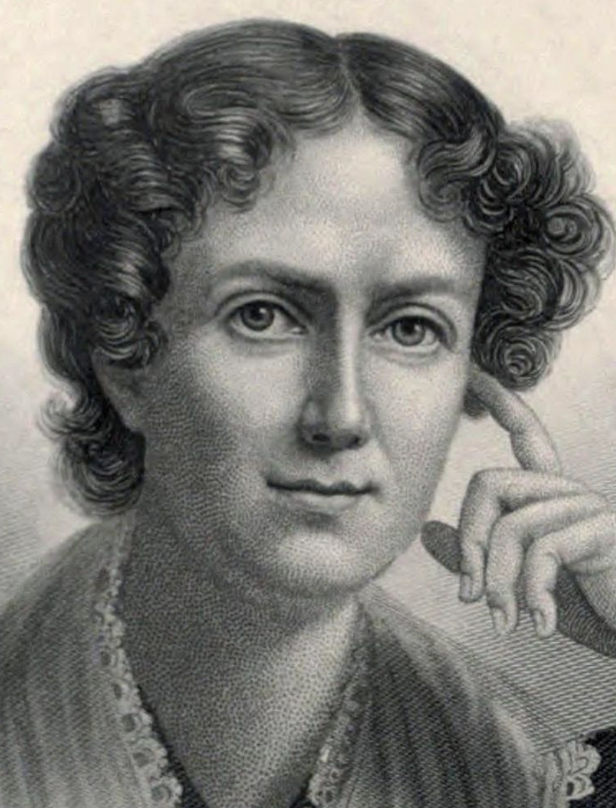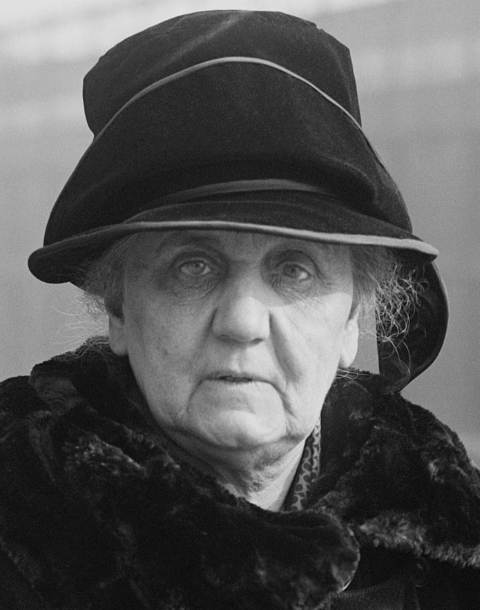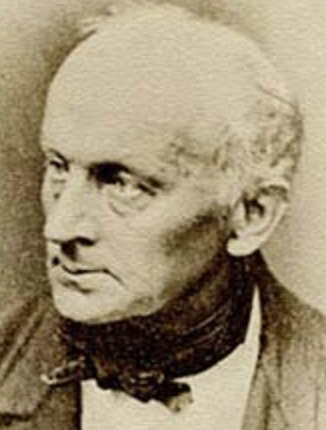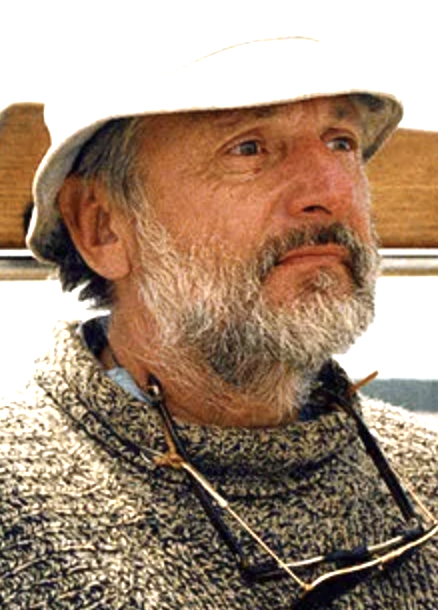September 6
Frances Wright

On this date in 1795, Frances Wright, the first woman to publicly lecture in the United States, was born an heiress in Scotland. An arresting five feet, 10 inches as an adult, Wright influenced fashion of her day with her liberating style of ringlets and later her adoption of “Turkish trousers.” She traveled with her younger sister Camilla to America in 1818. Her play, “Altorf,” was staged to acclaim in New York in 1819, where she shocked society by using her byline as a female author.
Her travel book, Views of Society & Manners in America (1820), caused a sensation in Great Britain and abroad. Freethinker Jeremy Bentham became her mentor and General Lafayette her confidante. Returning at 29 to America, Frances became a U.S. citizen. As an early and passionate abolitionist, she began a noble but ill-fated model communal plantation to educate slaves for freedom at Nashoba, Tenn. They would have no religion but “kind feeling and kind action,” Wright decreed. The experiment unraveled for lack of money.
At 33, Wright launched her speaking career on July 4, 1828, in Cincinnati, seeking to “destroy the slavery of the mind” and counteract the effects of a religious revival on women, as well as the Christian Party in Politics movement. Wright called for the education of women and the rejection of religion. Her historic speaking tour won her adoration from progressives such as the young Walt Whitman, who recalled how “we all loved her: fell down about her.” But press and clergy dubbed Wright “The Red Harlot of Infidelity” and a “voluptuous preacher of licentiousness.”
Wright urged, “Turn your churches into halls of science, exchange your teachers of faith for expounders of nature. … Fill the vacuum of your mind!” Practicing what she preached, she purchased an old church in New York City for $7,000 and renamed it the “Hall of Science.” It opened its doors in April 1829 for lectures, a radical bookstore and at one time offered a health clinic. She and Robert Dale Owen launched The Free Enquirer and the Working Men’s Party, advocating a 10-hour workday, for which she was dubbed a “female Tom Paine” by the mayor of New York.
After an unsuccessful marriage to Frenchman Phiquepal D’Arusmont, resulting in the birth of a daughter, Wright returned to the U.S., where she lectured and wrote. When Wright divorced her husband, she tragically lost custody of her daughter. She broke her hip in a fall and died prematurely after great suffering in Cincinnati. D. 1852.
“I am not going to question your opinions. I am not going to meddle with your belief. I am not going to dictate to you mine. All that I say is, examine, inquire. Look into the nature of things. Search out the grounds of your opinions, the for and the against. Know why you believe, understand what you believe, and possess a reason for the faith that is in you.”
— Frances Wright, "Divisions of Knowledge" (1828)
Jane Addams

On this date in 1860, Jane Addams was born, the eighth child of a prosperous family in Cedarville, Ill. Her mother died while pregnant when Addams was 2. Her businessman father, Quaker by conviction but not affiliation, served for many years in the state Senate. Addams entered Rockford Female Seminary at age 17, intending to pursue a medical career.
Her plans changed after she developed health problems of her own and her father died from appendicitis while vacationing with his second wife at a Green Bay hotel. She inherited $50,000 in 1881, a considerable sum at the time.
She and classmate Ellen Gate Starr, with whom she had a romantic relationship, opened a settlement home in Chicago in 1889, expanding services for the working-class poor to include a girls’ home, nursery and other amenities. Hull House was secular by Addams’ decree. She documented social conditions, worked with reformers and radicals of every stripe and wrote articles on everything from suffrage to prostitution.
She co-founded the Woman’s Peace Party in 1915 and was elected national chair. It eventually became the Women’s International League for Peace and Freedom. She was intimately involved with the founding of sociology as an academic field in the U.S. The Jane Addams College of Social Work is a professional school at the University of Illinois in Chicago.
Addams won the Nobel Peace Prize in 1931. Although she credited Jesus in her address, “A Challenge to the Contemporary Church,” she denounced the church fathers very firmly in it: “The very word woman in the writings of the church fathers stood for the basest temptations.” While she remained a member of a Presbyterian church, Addams regularly attended and sometimes lectured at Unitarian and Ethical Society events and had a close relationship with members of the Jewish community.
Addams had a long domestic partnership with Mary Rozet Smith, who was wealthy and supported Addams’ work at Hull House and elsewhere. They were together for 40 years until 1934, when Smith died of pneumonia. Addams, who suffered a heart attack in 1926, died of cancer in 1935.
“A wise man has told us that ‘men are once for all so made that they prefer a rational world to believe in and live in.’ ”
— Addams, "Twenty Years at Hull-House" (1912)
Bruno Bauer

On this date in 1809, Bruno Bauer was born in Eisenberg, Thuringia, Germany. He studied at Friedrich Wilhelm University in Berlin, where he was strongly influenced by the rationalist philosophy of G.W.F. Hegel. After teaching theology in Berlin, he became a professor at the University of Bonn in 1839 but lost his chair in 1842 because of his rationalist views.
He later edited Hegel’s Lectures on the Philosophy of Religion (1818-32), a three-volume, critical edition which became one of Bauer’s best-known works. In 1840 he started a series of works arguing that Jesus was a fusion of Jewish, Greek and Roman theology. He concluded that early Christianity owed more to Greek Stoic philosophy than to Judaism. D. 1882.
“Everything that the historical Christ is, everything that is said of Him, everything that is known of Him, belongs to the world of imagination, that is, of the imagination of the Christian community, and therefore has nothing to do with any man who belongs to the real world.”
— Bauer, "Critique of the Evangelical History of the Synoptics" (1842)
Roger Waters

On this date in 1943, English rock musician and songwriter George Roger Waters, best known for his 20-year career in the band Pink Floyd, was born in Great Bookham, England. Waters met fellow Pink Floyd member and first lead singer Syd Barrett while growing up in Cambridge. David Gilmour, who would replace Barrett as lead singer in 1967 (the band formed in 1965), attended a different school on the same road. Waters met the other band members, Nick Mason and Richard Wright, while studying architecture at the Regent Street Polytechnic in London.
After Barrett’s departure, Waters gained creative control over the band’s music, writing almost all of the lyrics. It was also his idea to create “concept albums” such as The Dark Side of the Moon, Wish You Were Here, Animals, The Wall and The Final Cut. A series of albums the band produced in the 1970s are among the best-selling records of all time. The original band dissolved in 1985 due to creative conflicts but Gilmour ultimately won the legal right, after a contentious public battle with Waters, to continue to use the Pink Floyd name and a majority of the band’s songs.
Since the dissolution, Waters and Pink Floyd have made attempts at reunion shows, benefit concerts and tours. Waters embarked on a solo career after Pink Floyd, with the critically acclaimed album Amused to Death (1992) and a solo world tour starting in 1999, which became so successful it extended to three years. Waters worked on an opera, “Ça Ira,” for 16 years, which was released in 2005.
In an interview with Mark Brown of the Rocky Mountain News, Waters said: “Please, God — I’m an atheist so maybe I shouldn’t be asking God — but let Barack Obama finally win the Democratic nomination and elect a person who seems to be not just enormously intelligent but also deeply humane and seems to have an imagination.” (April 25, 2008.) From his lyrics for “What God Wants, Part I”: “Through the power of money, And the power of your prayers, What God wants God gets God help us all. God wants dollars, God wants cents, God wants pounds shillings and pence. … What God wants God gets God help us all.” (Amused to Death, 1992)
PHOTO: Waters performing in 2007 in São Paulo, Brazil; Daigo Oliva photo under CC 2.0.
“I had some pretty dark and desperate moments all those years ago. … I didn’t ever smash up a hotel room or throw a TV out a window. That was Led Zeppelin. Thank god. If there was a god, you know, which there isn’t.”
— Waters interview from "The Wall Tour," America Online
Robert M. Pirsig

On this date in 1928, Robert M. Pirsig was born in Minneapolis. He was tested with an IQ of 170 when he was only 9 years old. He enrolled in the University of Minnesota when he was 15, but left to join the army in 1946. Pirsig returned to the university and graduated with a degree in philosophy in 1950, as well as studying philosophy at Banaras Hindu University in India and earning his M.A. in journalism from the University of Minnesota in 1958.
He later became a professor of English rhetoric and composition at the University of Montana, but stopped teaching after he was briefly diagnosed with schizophrenia and depression. He appeared to recover after some institutional care.
In 1974, Pirsig wrote the wildly popular philosophical book Zen and the Art of Motorcycle Maintenance: An Inquiry into Values, in which he detailed a motorcycle trip he took with his son, Chris, while illustrating philosophical ideas. In the book, Pirsig wrote about his theory, “the metaphysics of quality,” which is still widely discussed today.
He married his first wife, Nancy Ann James, in 1954, and they had two sons: Chris, who died in 1979, and Ted. Pirsig married Wendy Kimball in 1978 and the two had a daughter, Nell, born in 1980.
In Pirsig’s novel, Lila: An Inquiry Into Morals (1991), Pirsig wrote, “A person isn’t considered insane if there are a number of people who believe the same way. Insanity isn’t supposed to be a communicable disease. If one other person starts to believe him, maybe two or three, then it’s a religion.” He was quoted in Richard Dawkins’ 2006 book, The God Delusion, as having said more succinctly, “When one person suffers from a delusion, it is called insanity. When many people suffer from a delusion it is called Religion.” D. 2017.
“Religious mysticism is intellectual garbage. It’s a vestige of the old superstitious Dark Ages when nobody knew anything and the whole world was sinking deeper and deeper into filth and disease and poverty and ignorance. It is one of those delusions that isn’t called insane only because there are so many people involved.”
— Pirsig, "Lila: An Inquiry Into Morals" (1991)
Rosie Perez

On this date in 1964, entertainer and activist Rosa María “Rosie” Perez was born in Brooklyn, N.Y., to Lydia Perez and Ismael Serrano. Her parents weren’t married to each other and a week after giving birth, her schizophrenic mother left her at the home of Rosie’s aunt and vanished, leaving her there for the next three years.
In her 2014 memoir Handbook for an Unpredictable Life: How I Survived Sister Renata and My Crazy Mother, and Still Came Out Smiling (With Great Hair), Perez detailed how her mother returned one day and soon turned her over to a Catholic orphanage, where she was physically and emotionally abused by nuns and became “the ‘property’ of the Catholic Church.” She was also sexually abused by her brother on a visit to her mother’s.
At age 19 she was hired as a dancer on the music and dance TV show “Soul Train” while she was attending college in Los Angeles. In 1988, director Spike Lee hired her for her first major acting role in “Do the Right Thing.” She starred in the hit comedy “White Men Can’t Jump” (1992) co-starring Wesley Snipes and Woody Harrelson.
Perez was nominated for the Best Supporting Actress Oscar for her role in the 1993 film “Fearless” and attended the ceremony with her father. She had roles in “Perdita Durango” (1997), “The 24 Hour Woman” (1999), “Riding in Cars With Boys” (2001), “Pineapple Express” (2008) and most recently as of this writing, in the 2020 superhero film “Birds of Prey.”
Perez has choreographed music videos by Janet Jackson, Bobby Brown, Diana Ross, LL Cool J and worked as choreographer on the TV series “In Living Color” (1990–94). She made her Broadway debut in 2003 in Terrence McNally’s “Frankie and Johnny in the Clair de Lune.” In 2015 she returned to Broadway to star in “Fish in the Dark,” written by Larry David. She played Lucille in “Clifford the Big Red Dog” (2021), an adaptation of the children’s book series by Norman Bridwell.
She co-hosted the ABC-TV talk show “The View” in 2014-15 but left after one season. Perez is an activist for Puerto Rican rights. She married filmmaker and playwright Seth Zvi Rosenfeld in 1991. They divorced in 2001. She married artist Eric Haze in 2013. She has no children.
PHOTO: Perez at the premiere of her film “Won’t Back Down” in 2012; Joella Marano photo under CC 2.0.
“The abuse that I endured at the hands of nuns made me the type of person where I don’t believe in anybody’s dogma. I don’t buy it. It’s just a form of control. I do believe in energy. That’s my religion. The energy of love is necessary for me.”
— Perez interview, The New York Times (Jan. 13, 2020)
